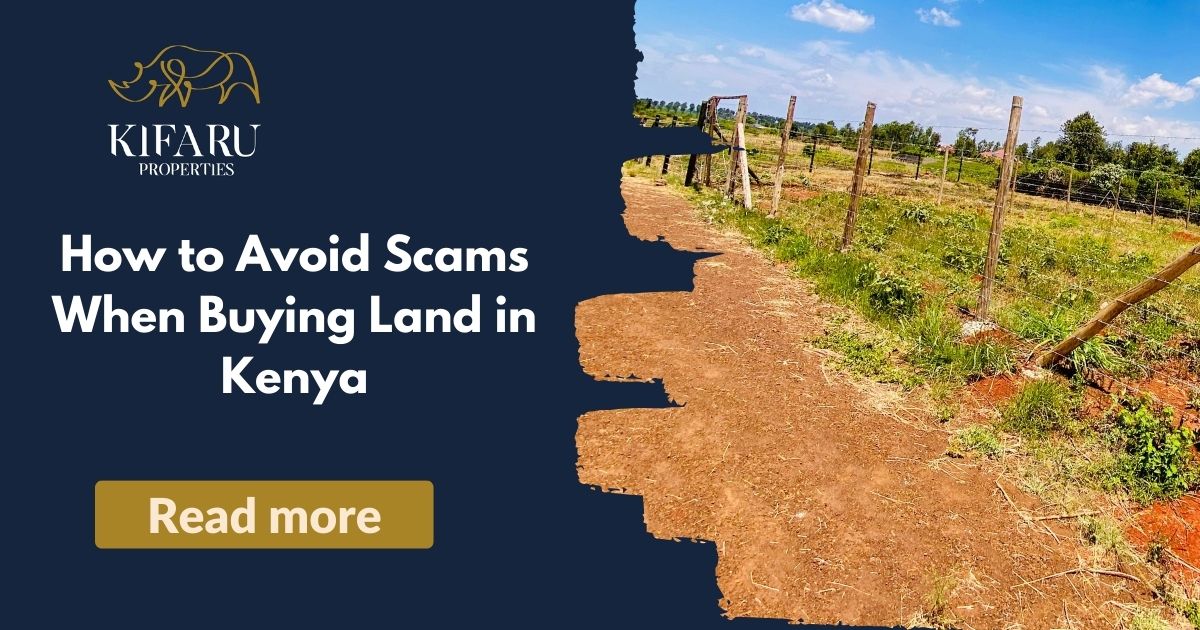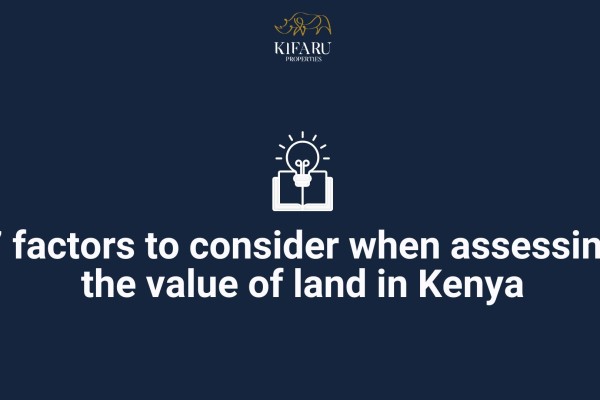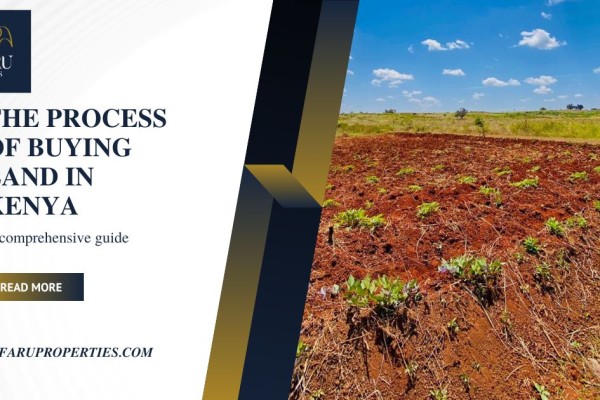- Aug 14, 2024
- Kifaru Meadows
- 377

1. Conduct Thorough Due Diligence
The first and most crucial step in avoiding land scams is conducting thorough due diligence. This involves verifying the ownership and status of the land.
2. Engage a Reputable Lawyer
Hiring a reputable and experienced lawyer is essential when purchasing land in Kenya. A good lawyer will guide you through the legal process, ensuring that all necessary documentation is in place. They will help draft and review the sale agreement, ensuring that the terms are favorable and protect your interests. Your lawyer will also ensure that the land transaction adheres to Kenyan laws and regulations, reducing the risk of falling into a scam.
3. Visit the Land in Person
One of the most common land scams involves selling land that either doesn’t exist or is not as described. To avoid this, always visit the land in person before making any payments. During your visit, inspect the land's boundaries, access roads, and its overall suitability for your intended use. You can also speak to neighbors or local authorities to confirm the land’s ownership and history. If the seller is hesitant or makes excuses to avoid a physical visit, consider it a red flag.
4. Avoid Cash Transactions
Scammers often insist on cash transactions to avoid leaving a paper trail. To protect yourself, avoid making cash payments when purchasing land. Instead, use bank transfers or checks, which provide a record of the transaction. Ensure that all payments are made to the seller’s account, as indicated in the sale agreement. Always obtain a receipt for any payment made, and keep all records of the transaction for future reference.
5. Beware of Deals That Seem Too Good to Be True
If a land deal seems too good to be true, it probably is. Scammers often lure unsuspecting buyers with incredibly low prices, promising quick returns on investment. While the prospect of a bargain may be tempting, it’s essential to exercise caution. Always compare the offered price with the current market rates in the area. If the price is significantly lower than average, investigate further to understand why. In some cases, the land may be in a disputed area or have legal issues that could lead to future complications.
6. Verify the Seller’s Identity
Before engaging in any land transaction, it’s crucial to verify the seller’s identity. Ensure that the person selling the land is the legitimate owner or has the legal authority to sell the land. This can be done by checking the seller’s identification documents, such as a national ID or passport, and comparing them with the details on the title deed. If the seller claims to represent a company, verify the company’s registration details and confirm that the person is authorized to act on behalf of the company.
7. Use Trusted Agents or Brokers
If you are working with a real estate agent or broker, ensure they are reputable and trustworthy. Scammers often pose as agents, so it’s essential to verify their credentials. A trusted agent will provide you with reliable information and help you navigate the buying process safely.
Conclusion
Buying land in Kenya can be a fulfilling and profitable investment, but it’s crucial to remain vigilant to avoid scams. By conducting thorough due diligence, engaging a reputable lawyer, visiting the land in person, and taking other precautionary measures, you can protect yourself from fraudsters and ensure a secure transaction. Remember, when it comes to buying land, it’s better to be safe than sorry.




